Bali | Indonesia
Welcome to Bali Bali is often referred to as the “Island of the Gods” due to its strong spiritual aura. Bali is a popular tourist destination known for its spiritual an
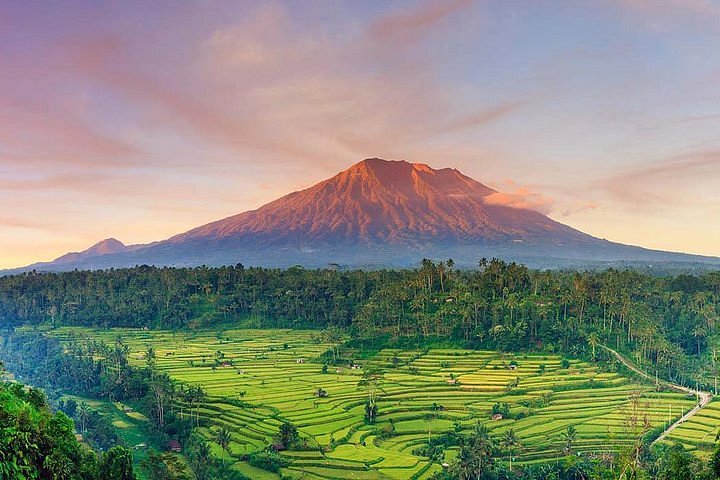
Bali is often referred to as the “Island of the Gods” due to its strong spiritual aura. Bali is a popular tourist destination known for its spiritual and wellness retreats, iconic rice terraces, beaches and active volcanoes. Bali is located in Southeast Asia, part of Indonesia’s Lesser Sunda Islands. It lies between the islands of Java and Lombok. The island is relatively small, covering an area of about 5,780 square kilometers (2,230 square miles). Balinese culture is deeply influenced by Hinduism, which sets it apart from the predominantly Muslim culture of the rest of Indonesia. The island is home to thousands of temples, ranging from small village shrines to grand complexes like Besakih. Religious ceremonies are an integral part of daily life.




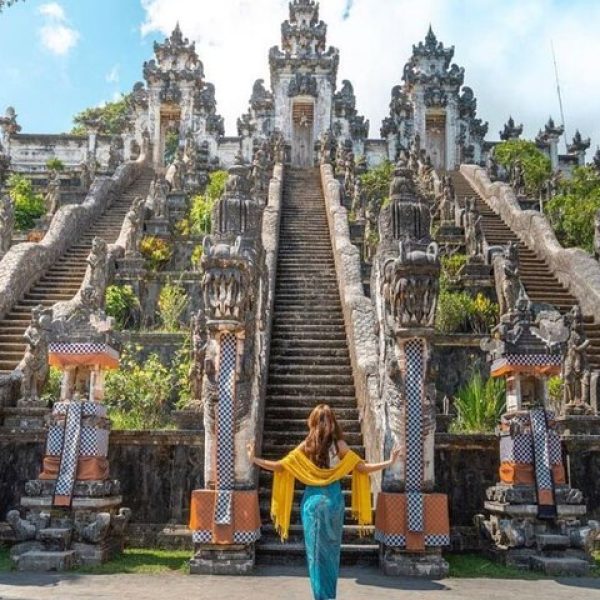

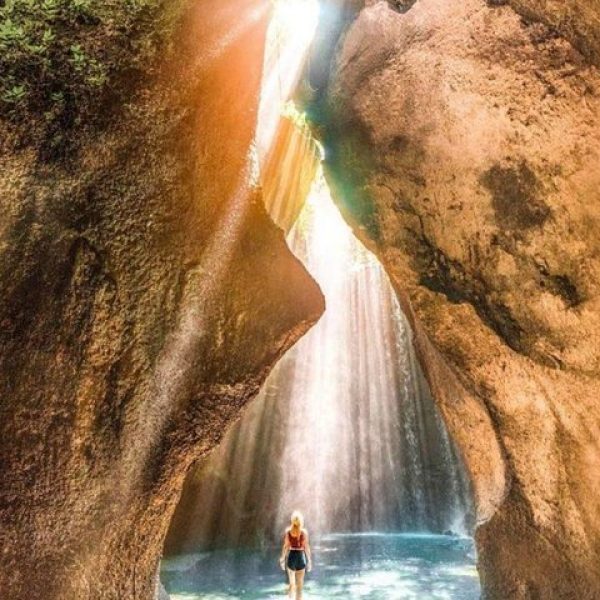

This private & all inclusive tour takes you to the most famous and Instagram-worthy spots in Bali like the Lempuyang Temple and Tegalalang Rice Terrace.

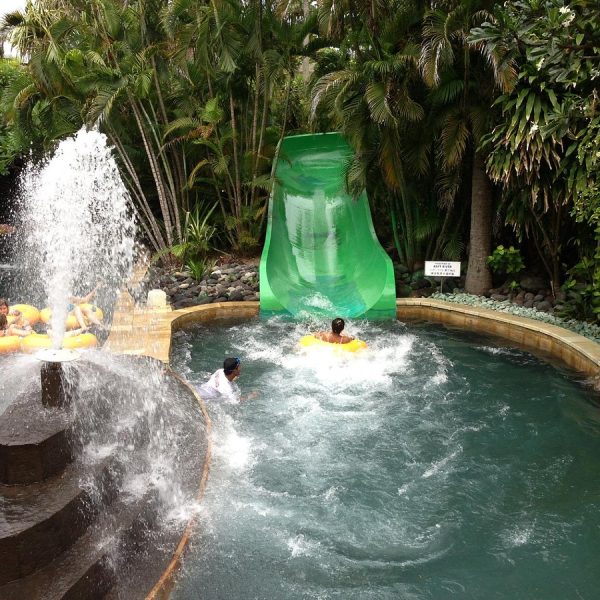

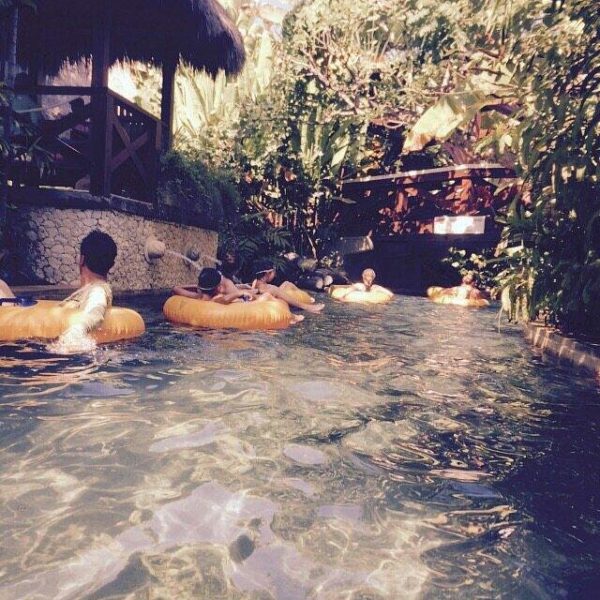

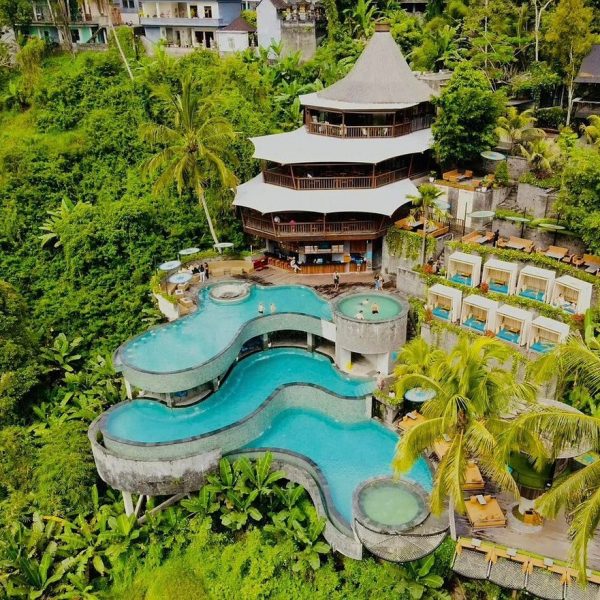
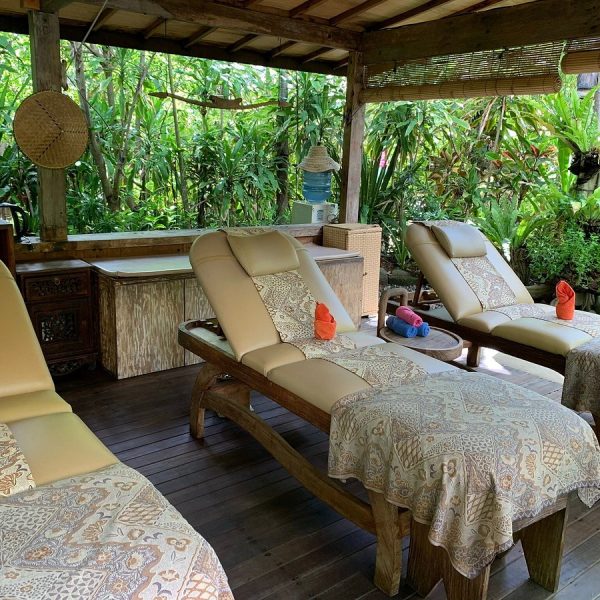

Exciting water slides slice through 3.8 hectares of landscaped tropical parks providing hours of fun and entertainment for the young and young at heart!


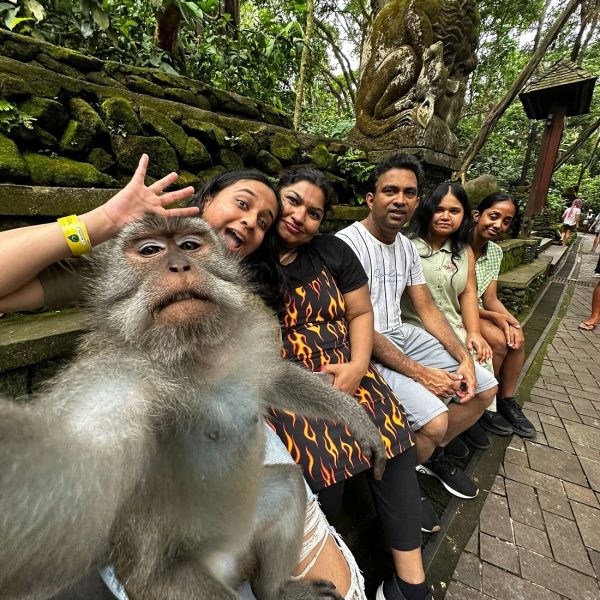

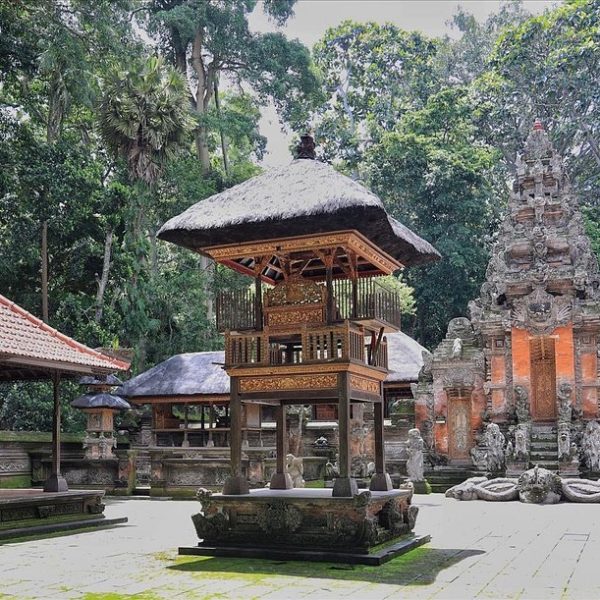
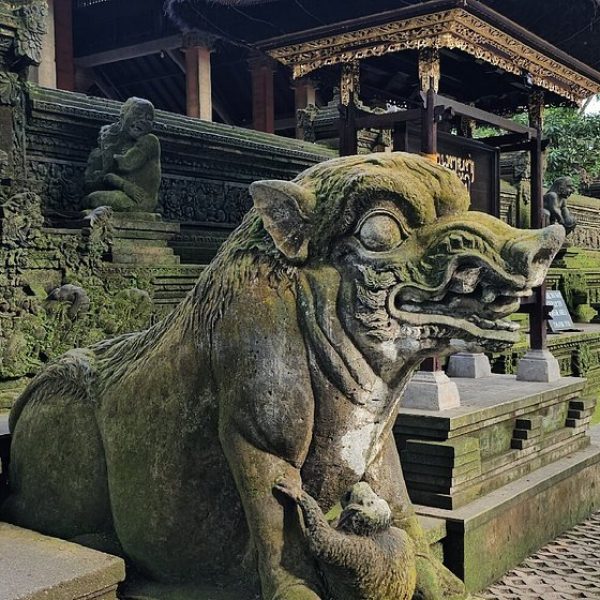

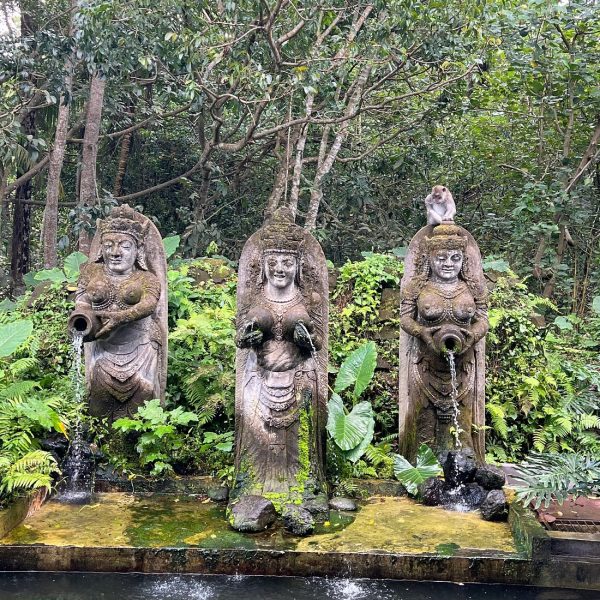



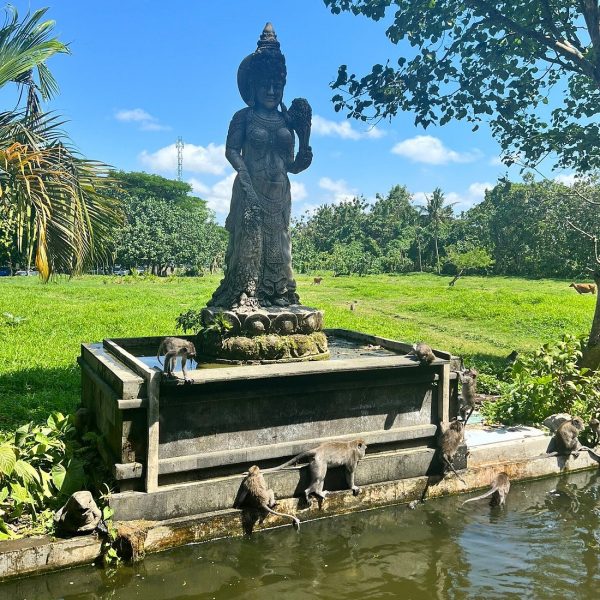

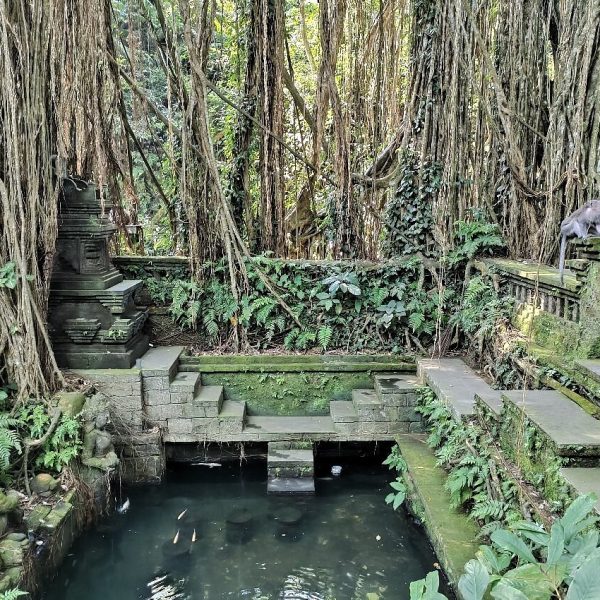
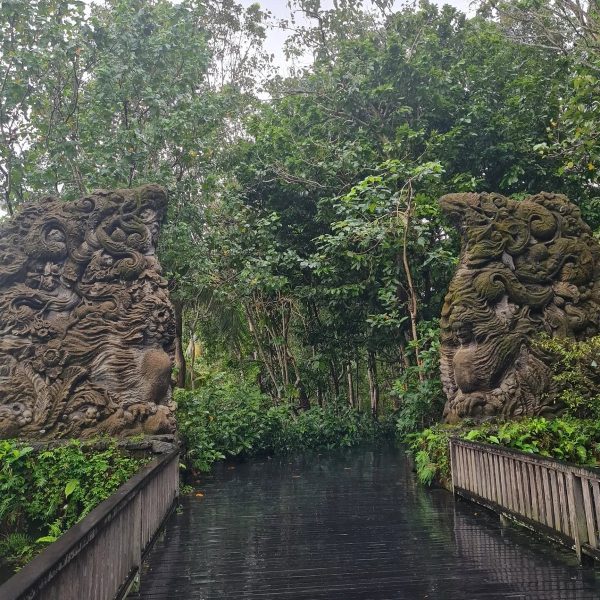
This sanctuary is home to over 1,200 monkeys. As you walk alongside them, you can also check out all the elaborate temples in the area.

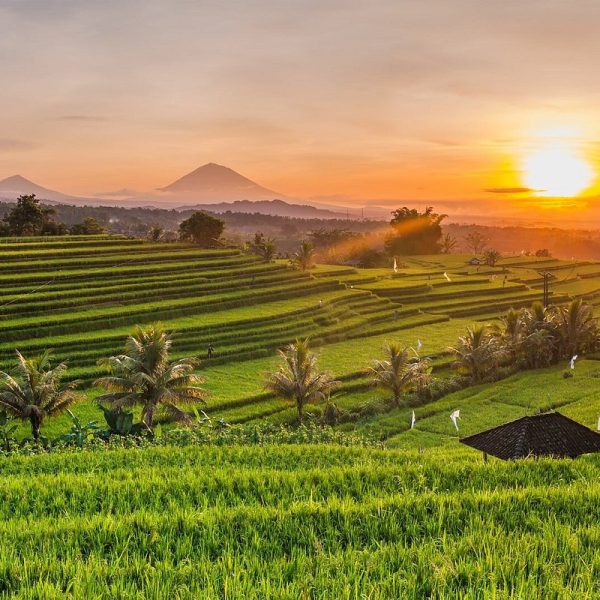

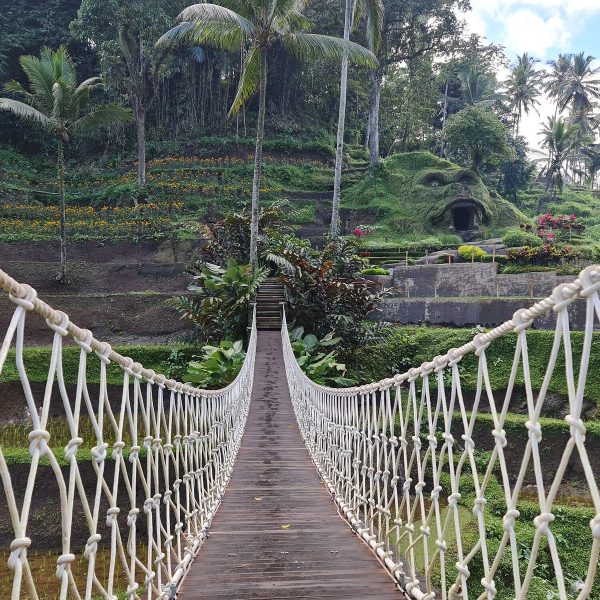


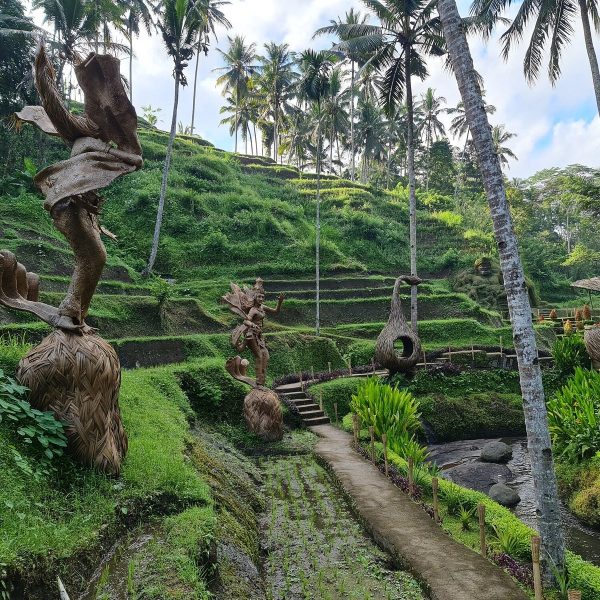
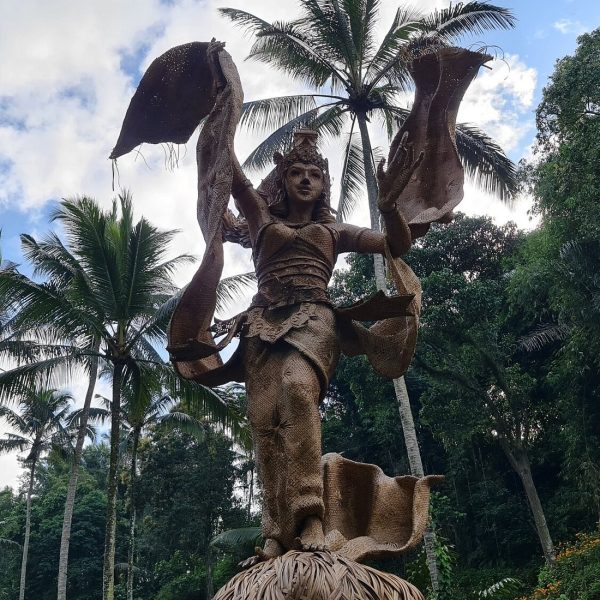
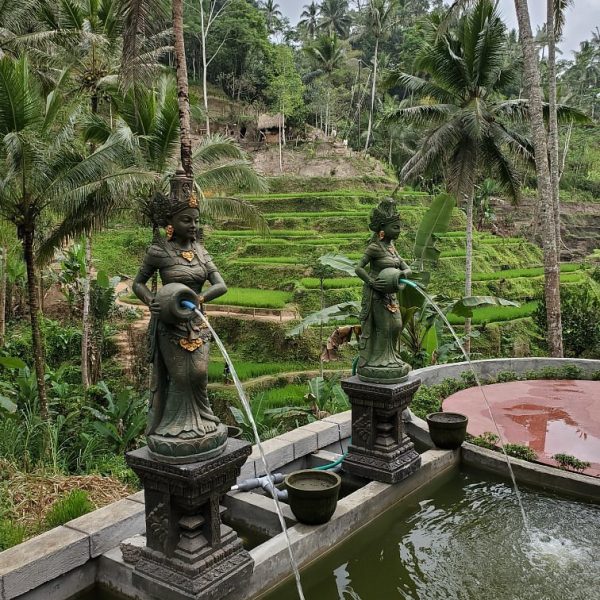
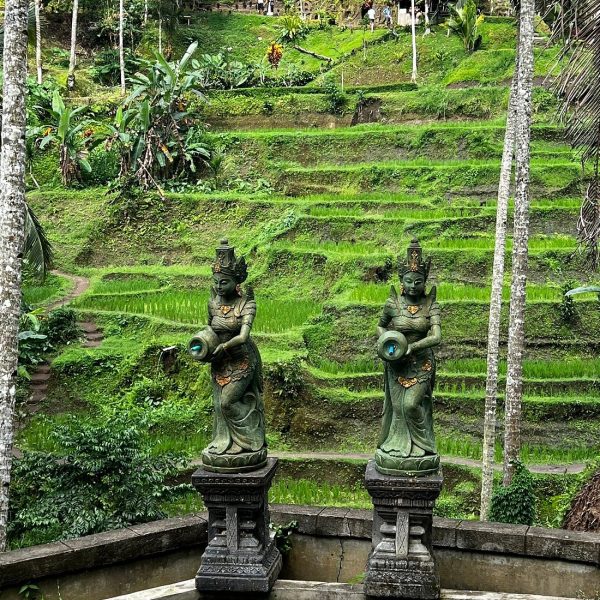

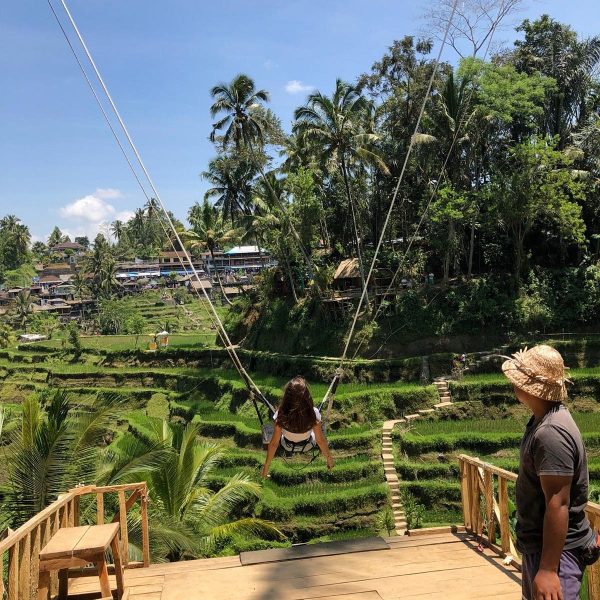
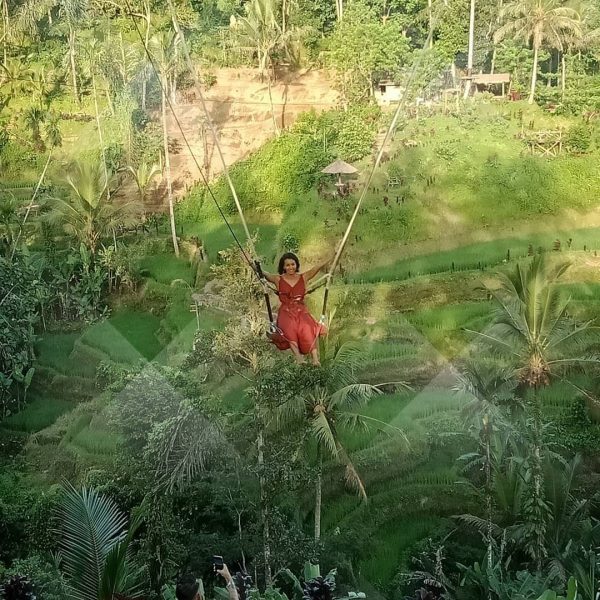


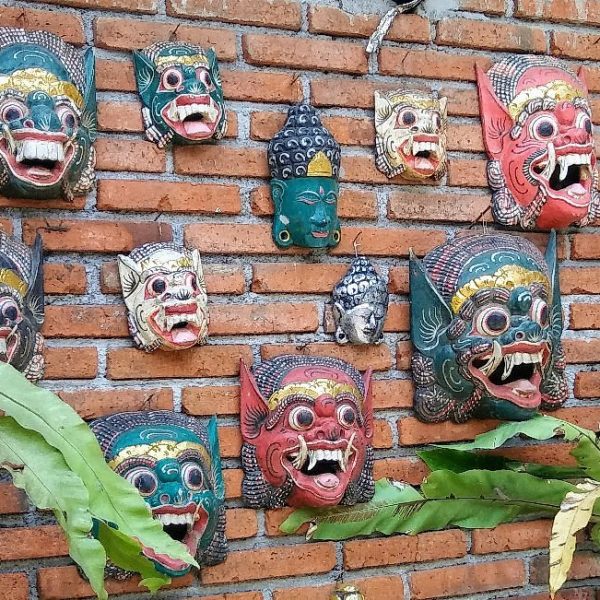
A UNESCO World Heritage site, comprises of cascading rice fields. Also visit the nearby Bali Pulina plantation and the mountain-edge swings.
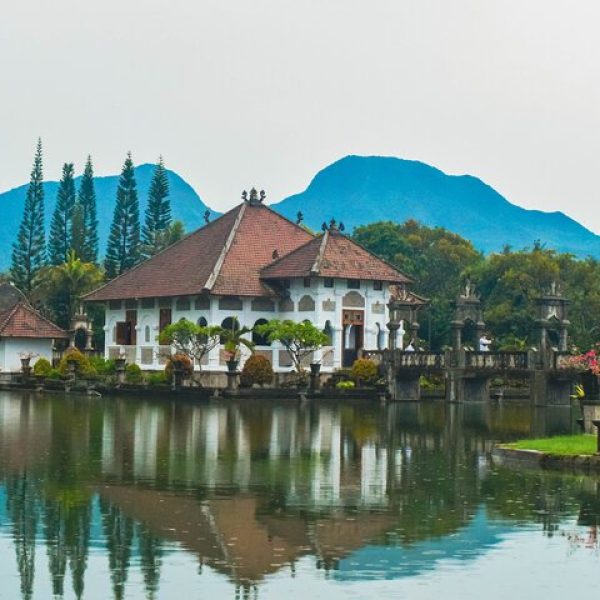
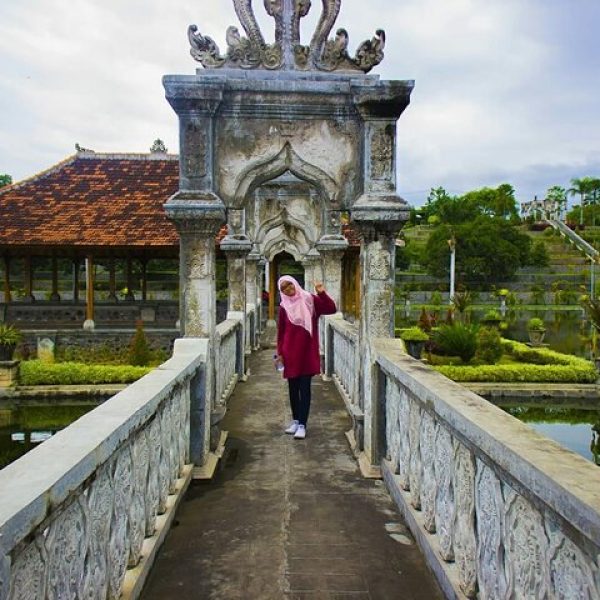
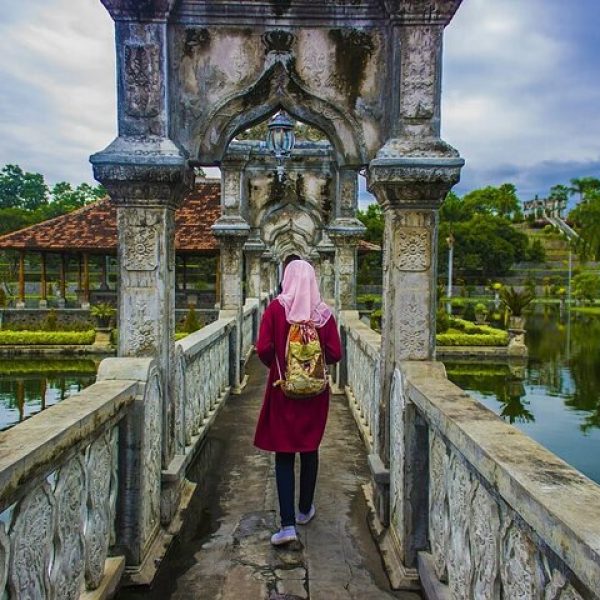
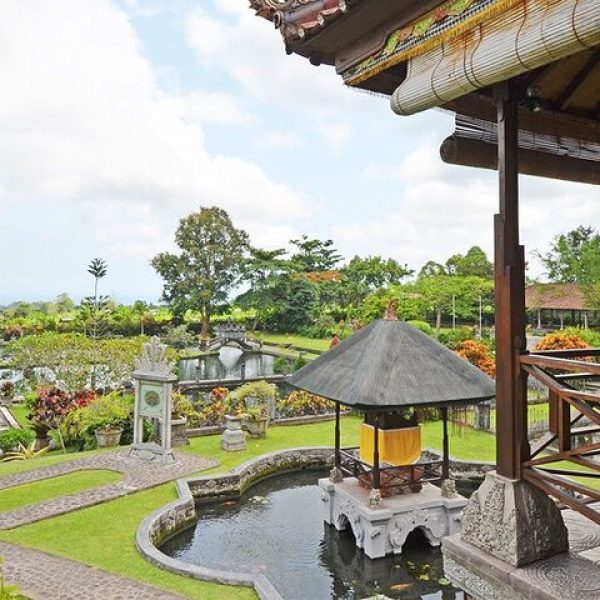
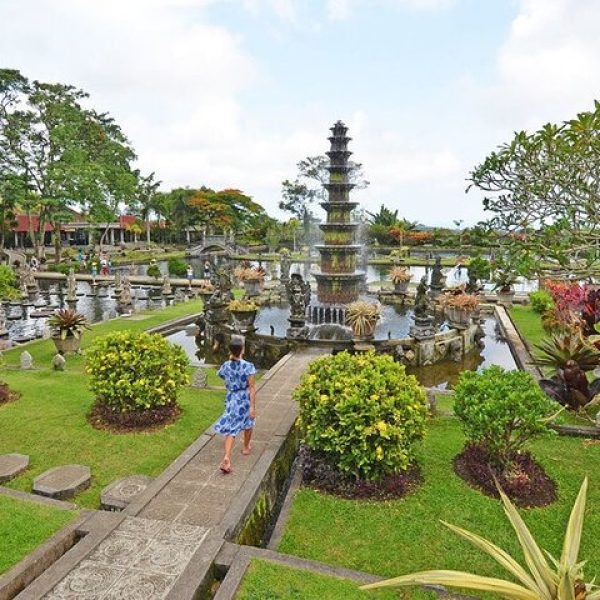
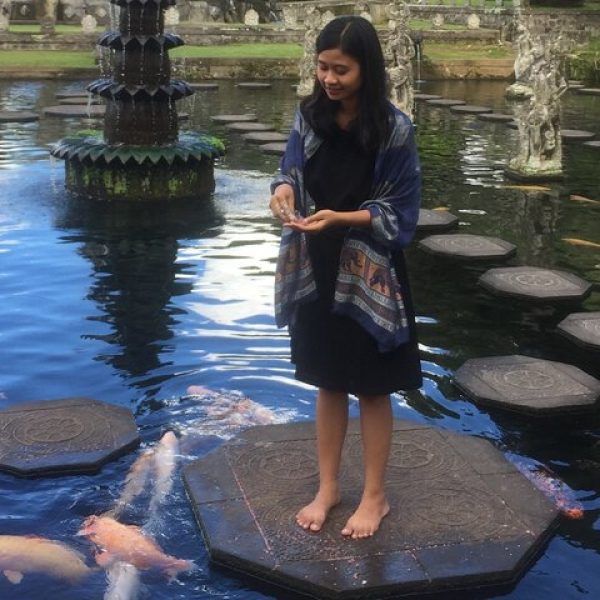

Visit some of its most important shrines and palaces. Your day trip includes entrance fees, a guide and round-trip transport from your hotel.
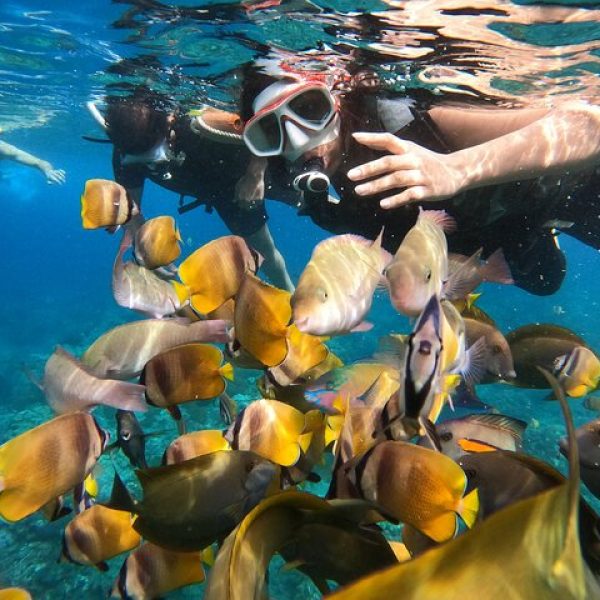
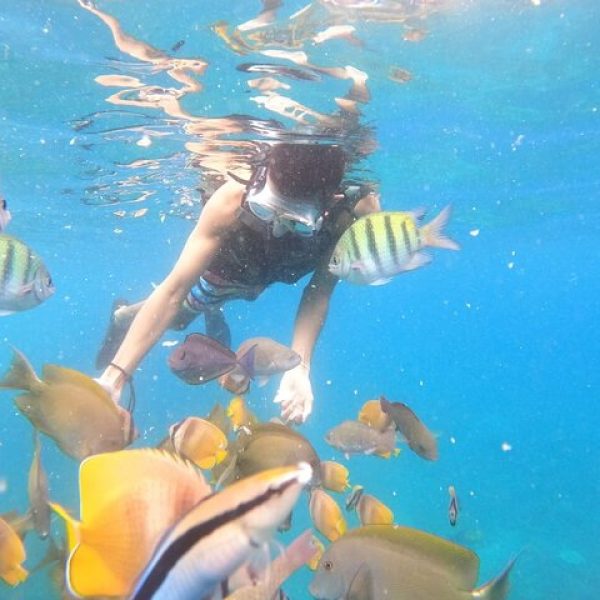

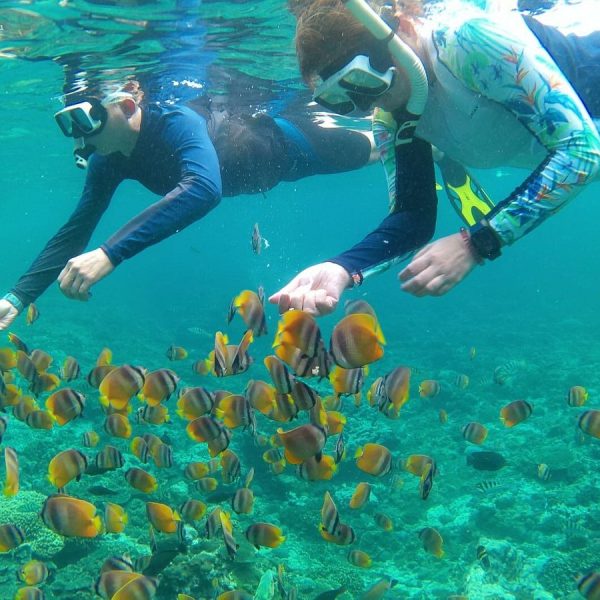
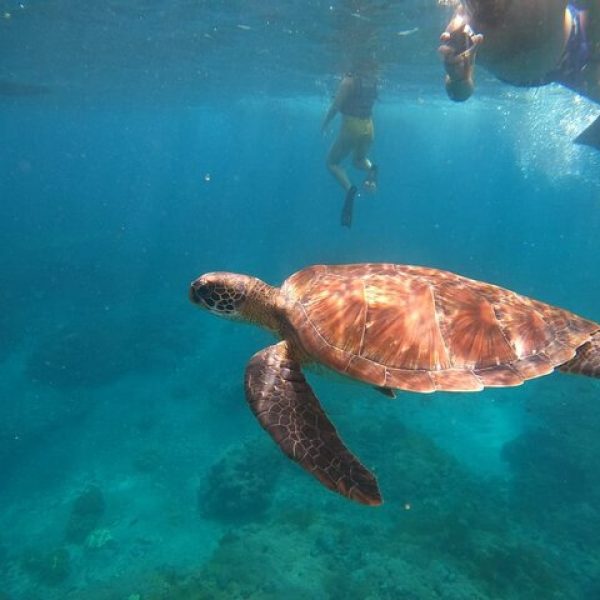

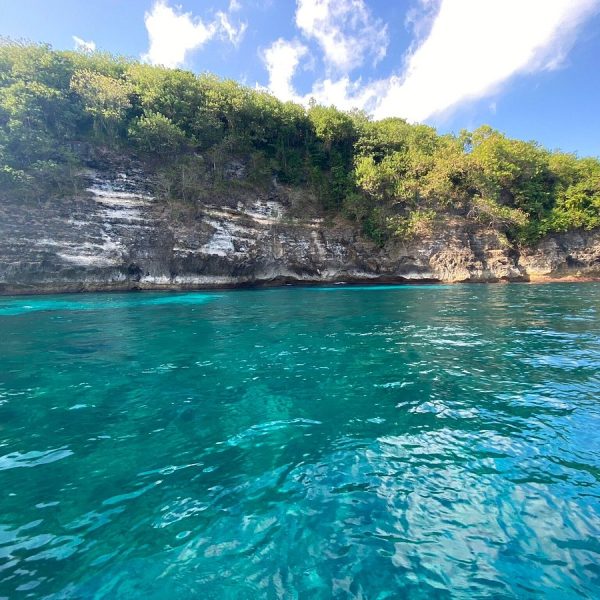
Private Snorkeling Boat accompanied by a Snorkeling Instructor. Snorkel at Manta Bay, Gamat Bay and Crystal Bay, ending with an Indonesian lunch.
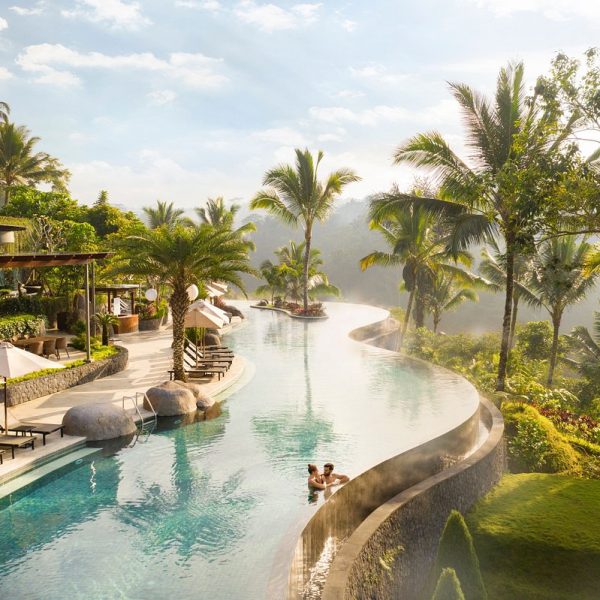





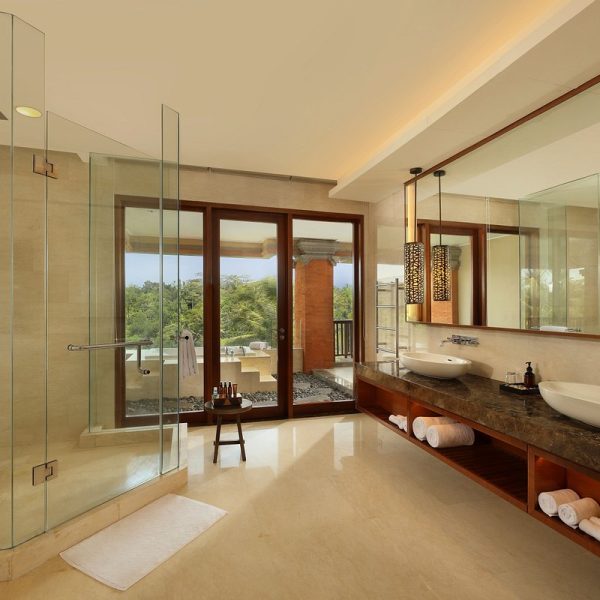
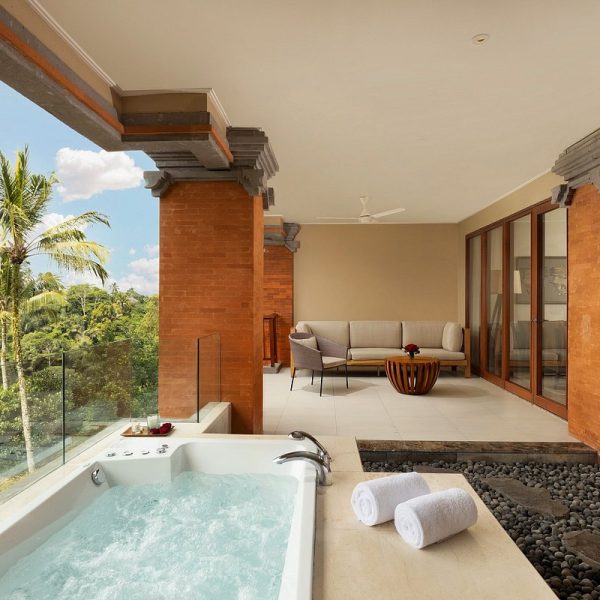
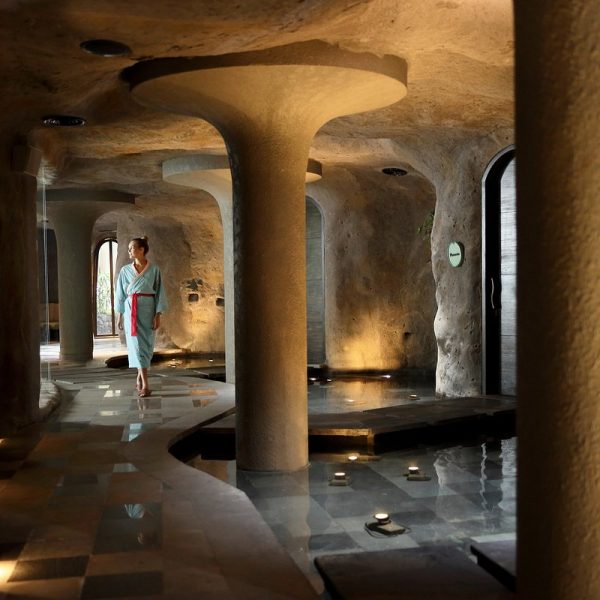

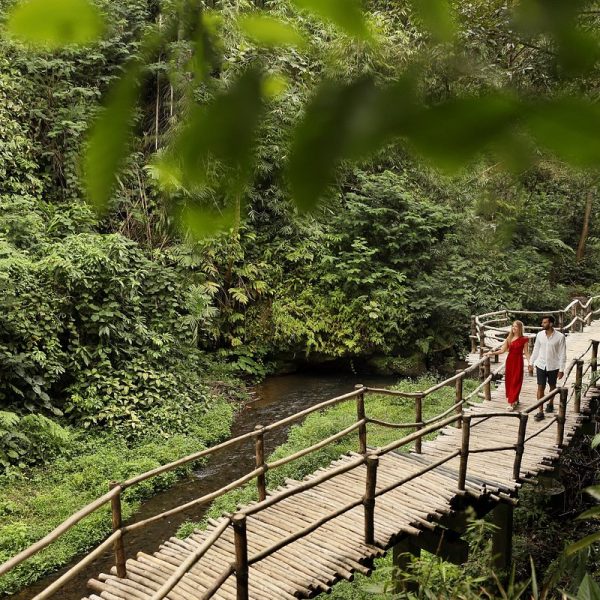

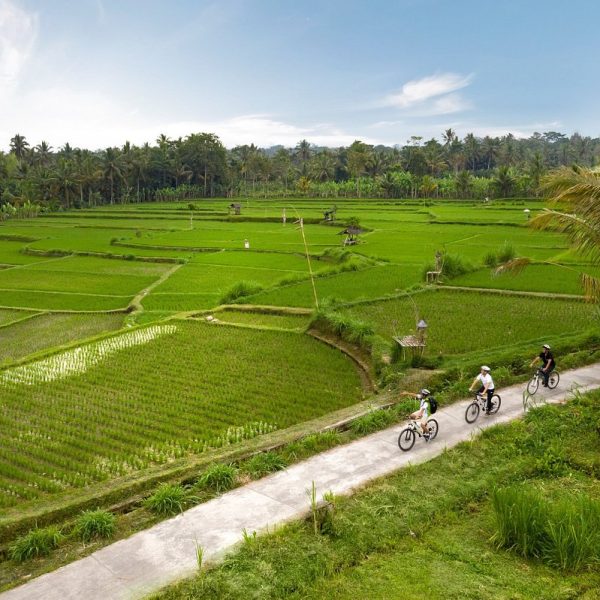
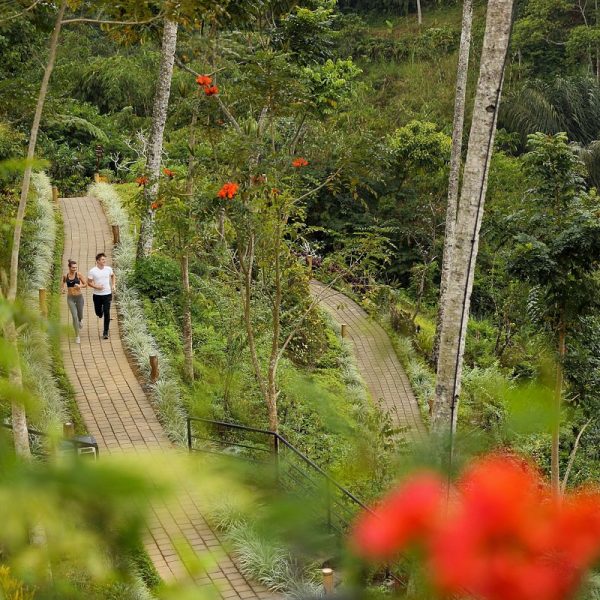
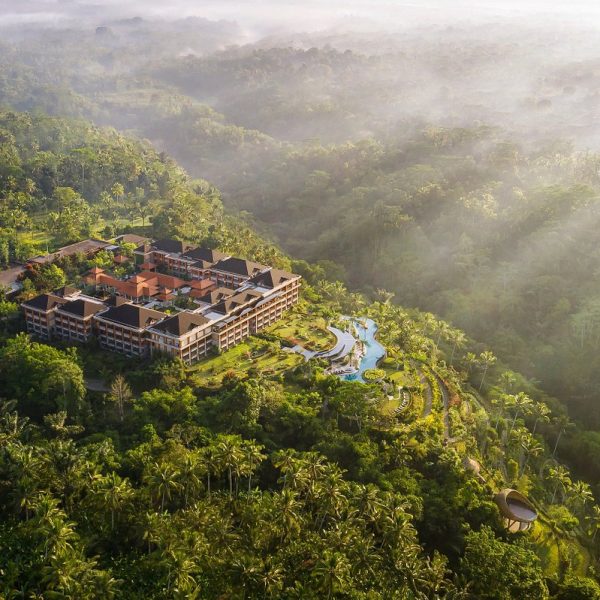
Five-star amenities and stunning views from every room, an 89-metre infinity swimming pool and signature world-class dining venues.
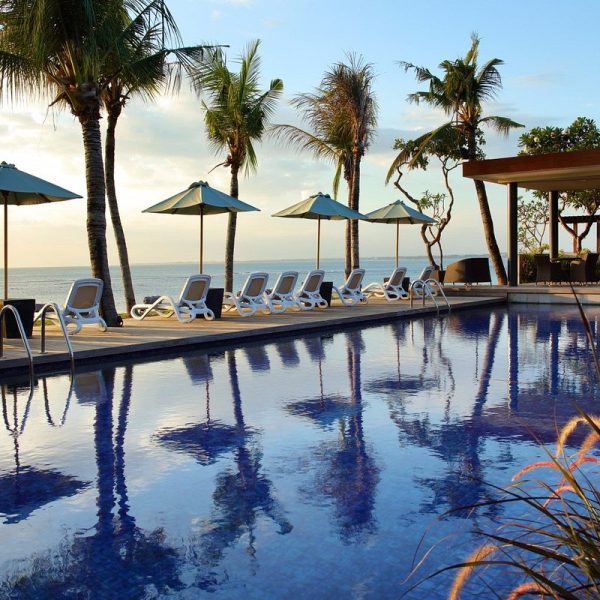

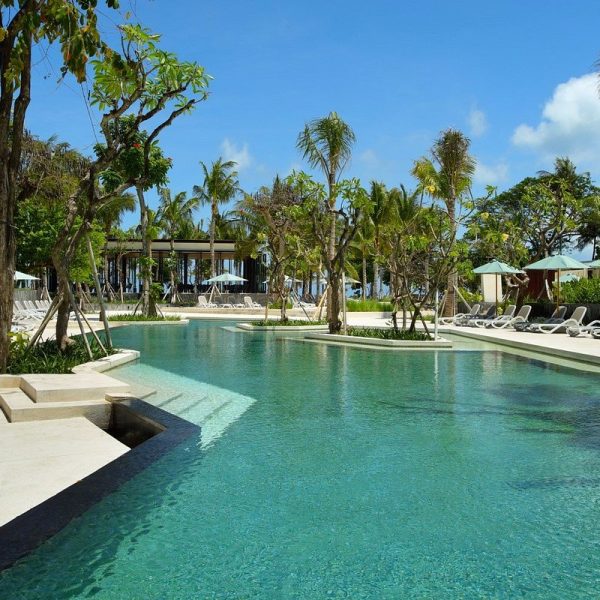
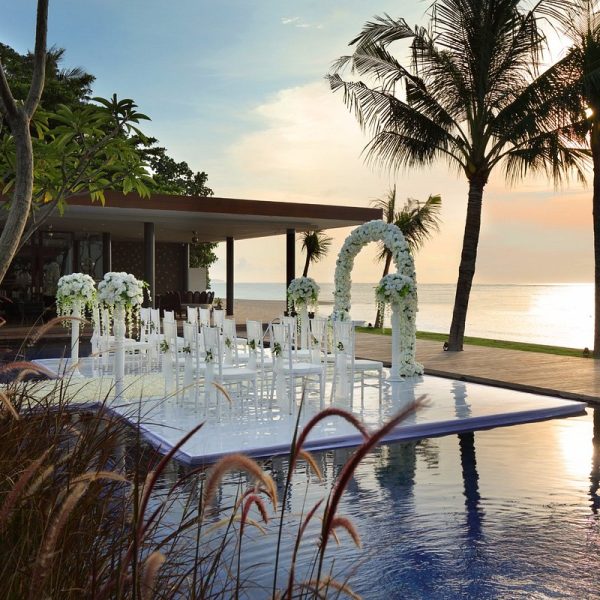

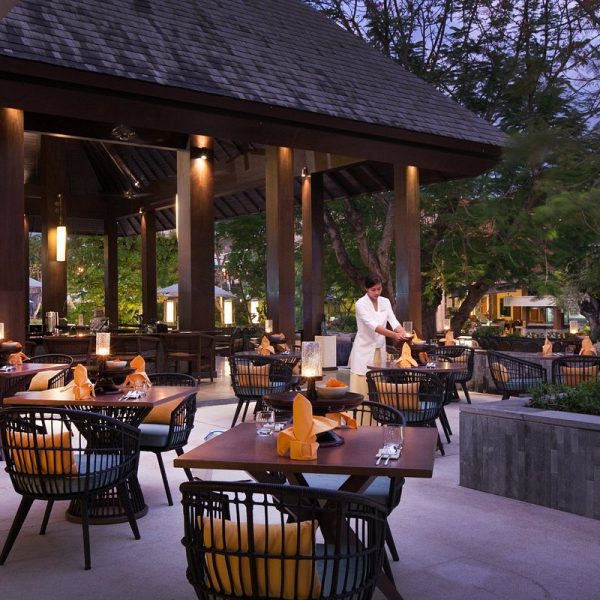
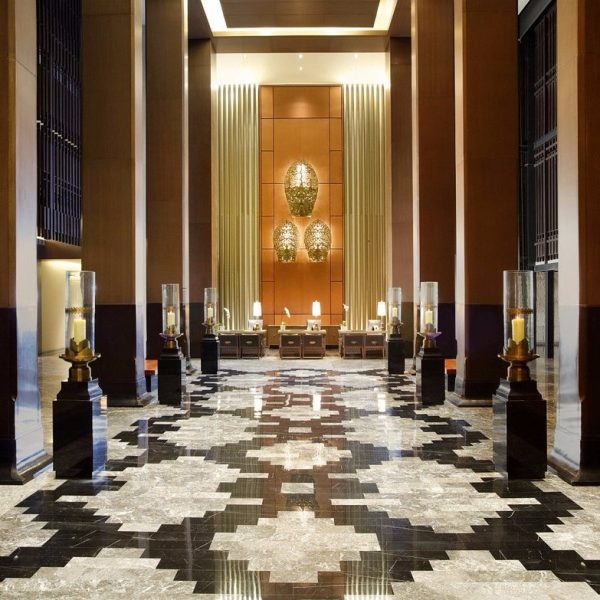
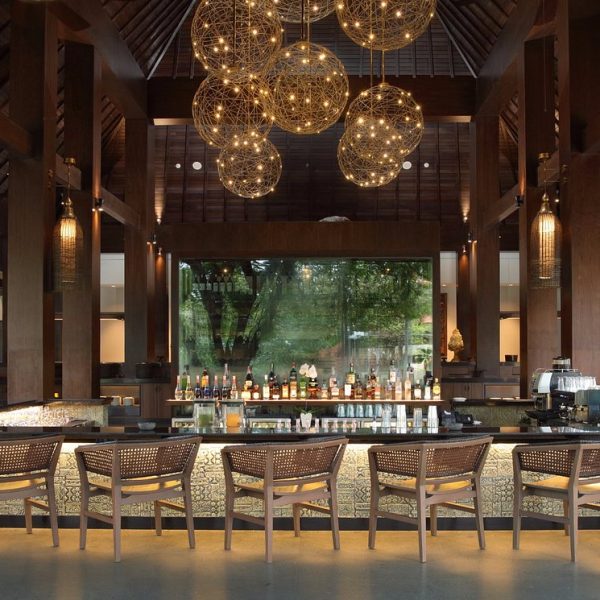
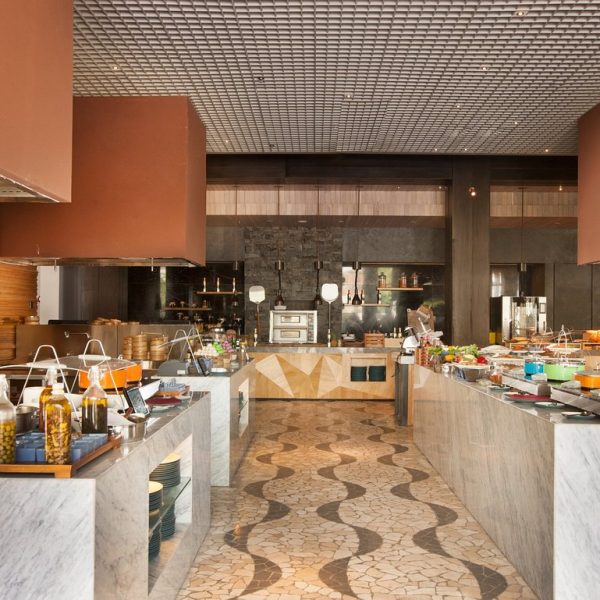
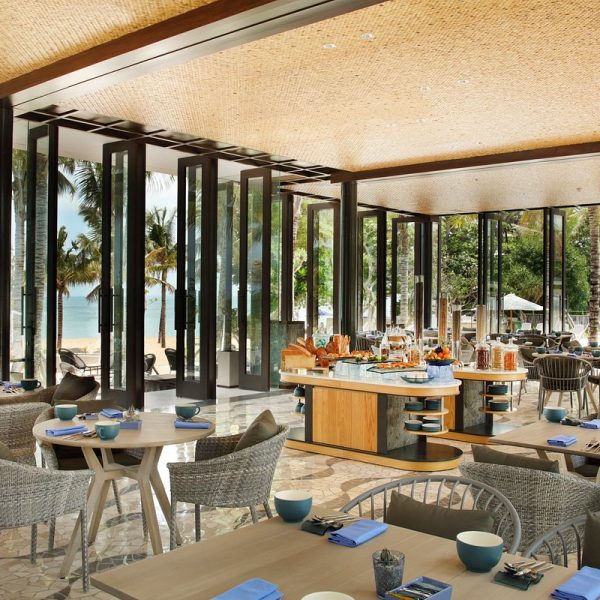


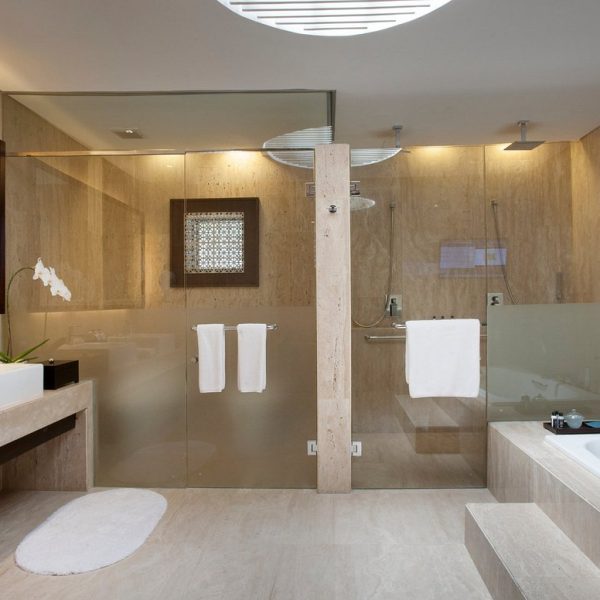
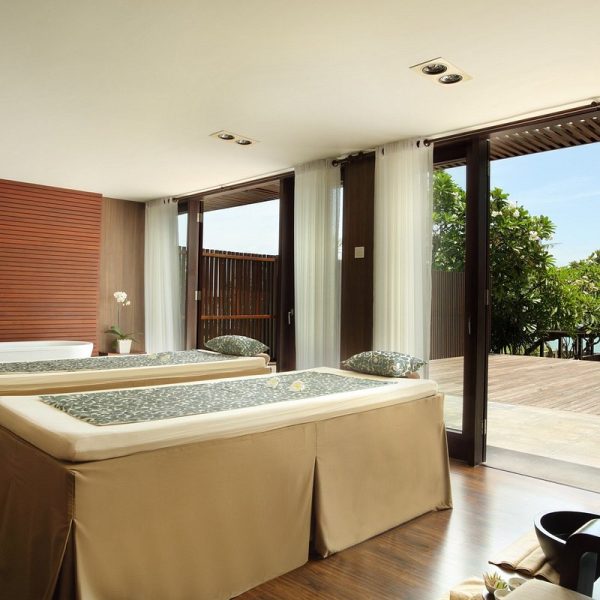
Featuring 495 modern and spacious Guest rooms, Suites and Villa with the highest standards of facilities, amenities, and professional service.
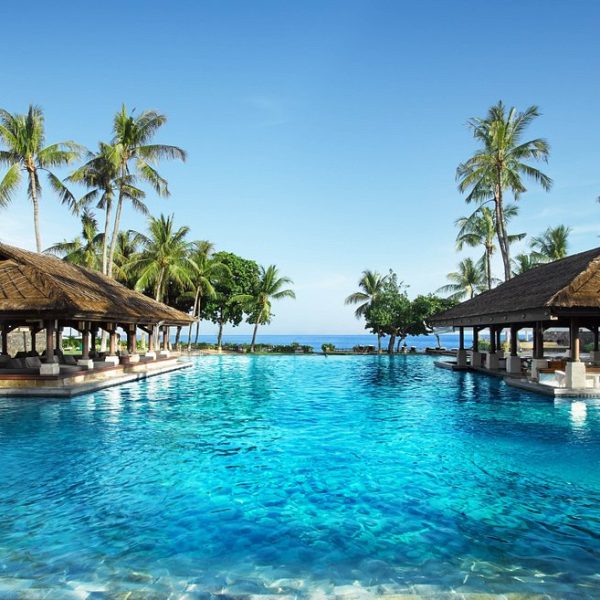
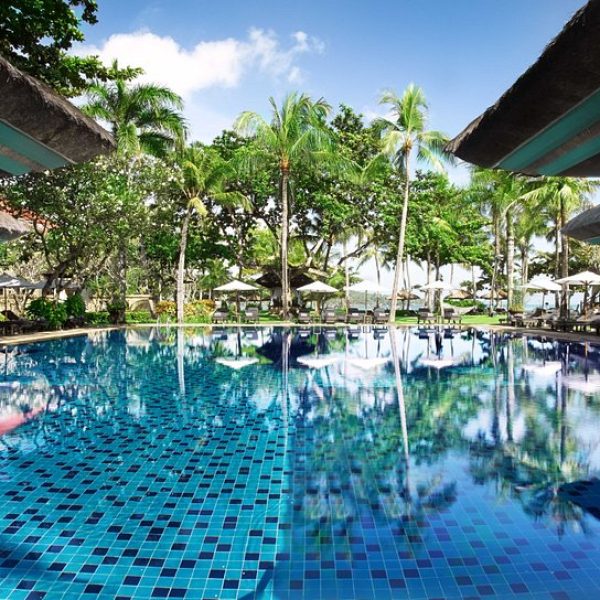

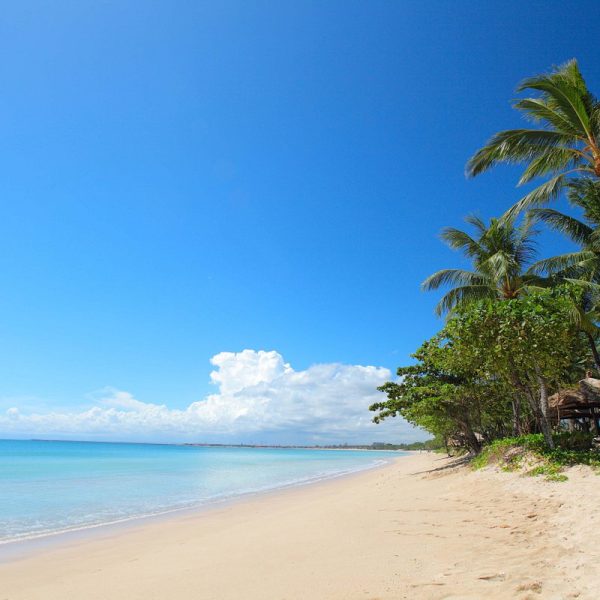
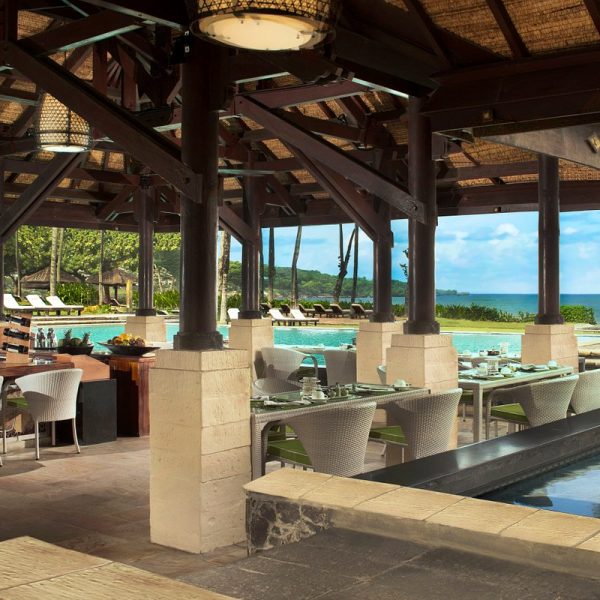
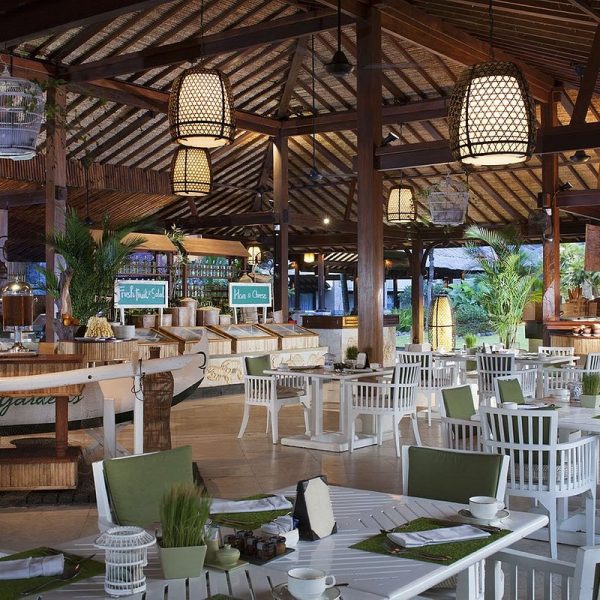

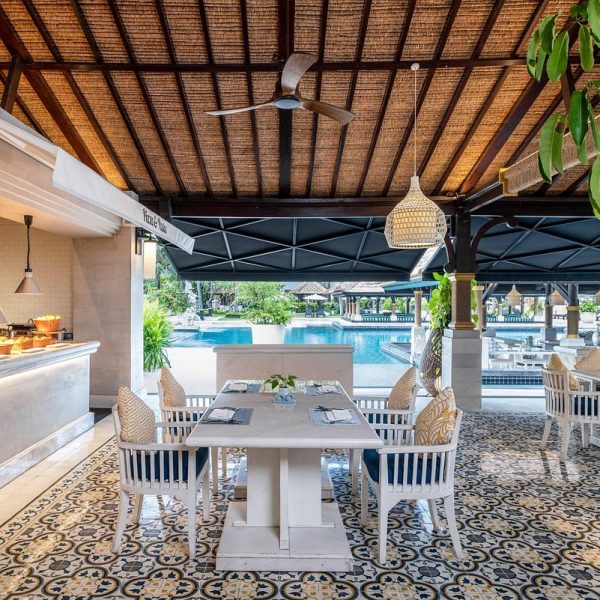
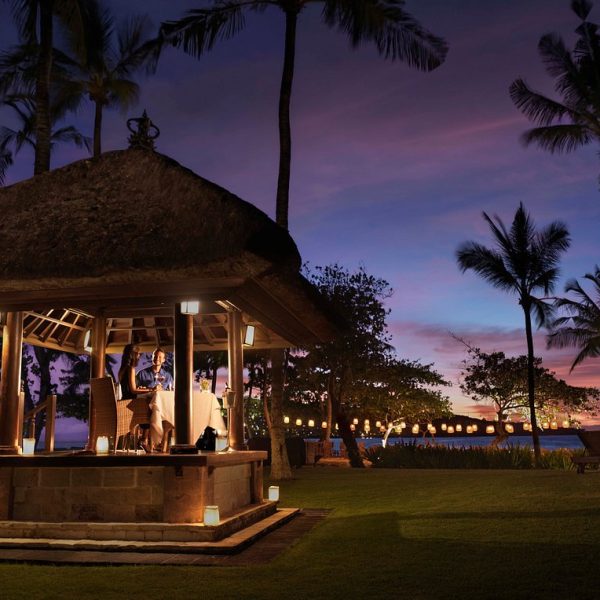
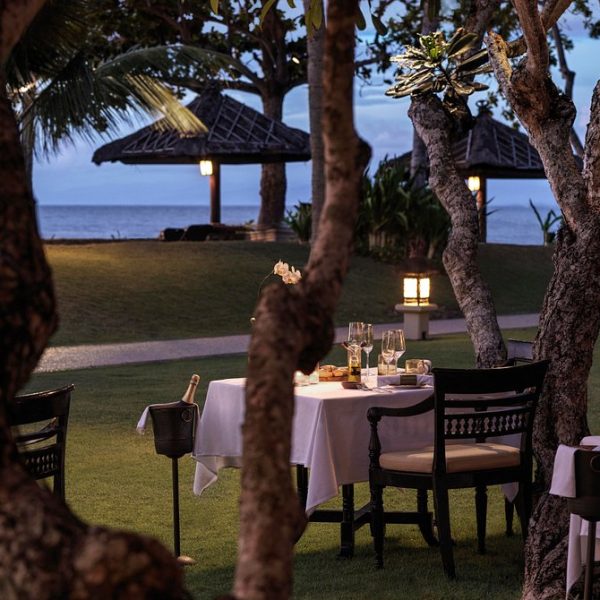
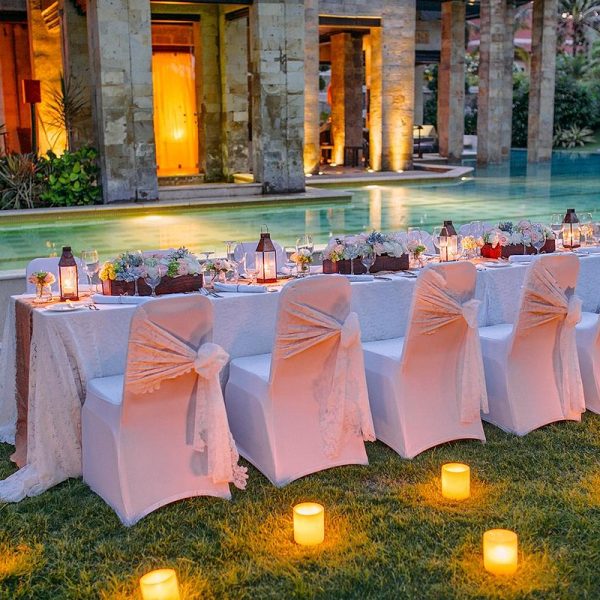
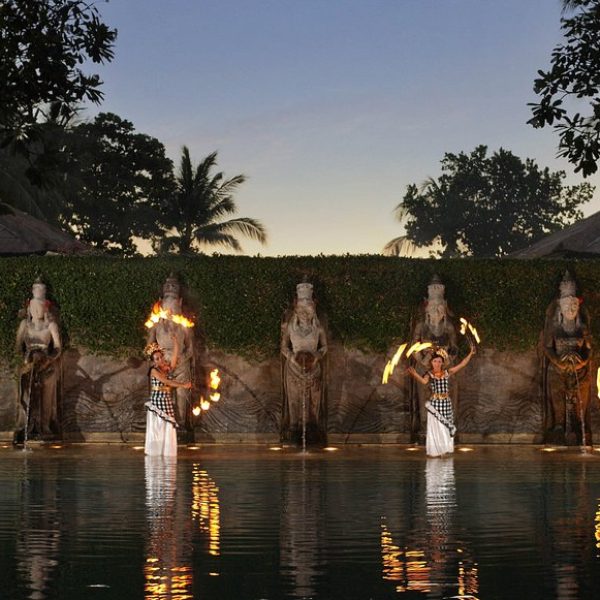
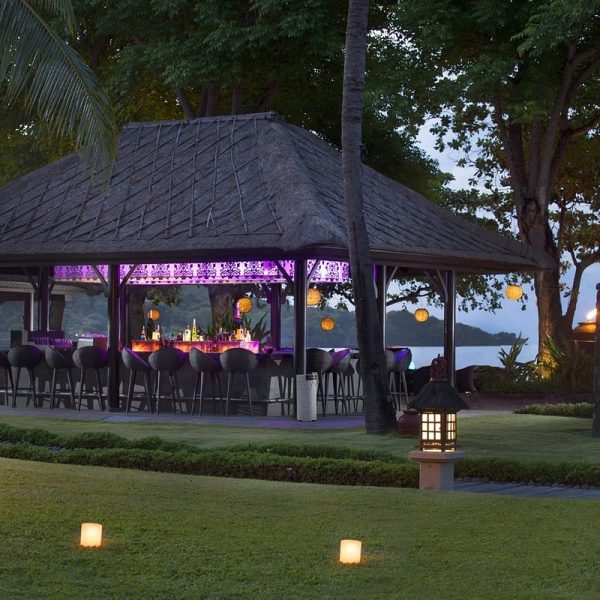
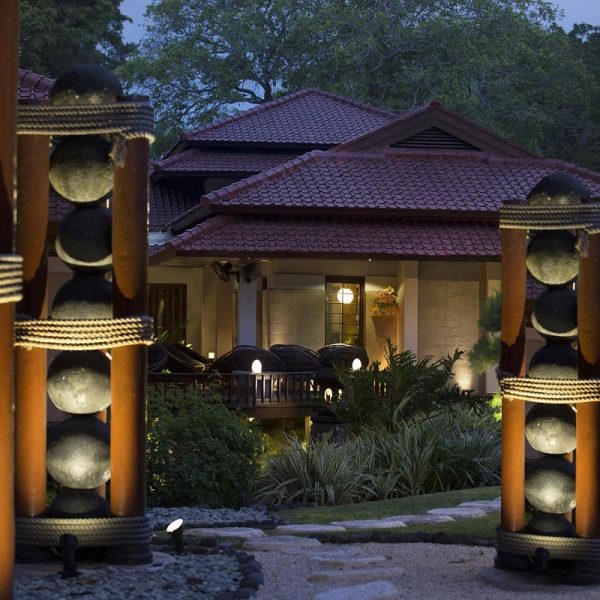
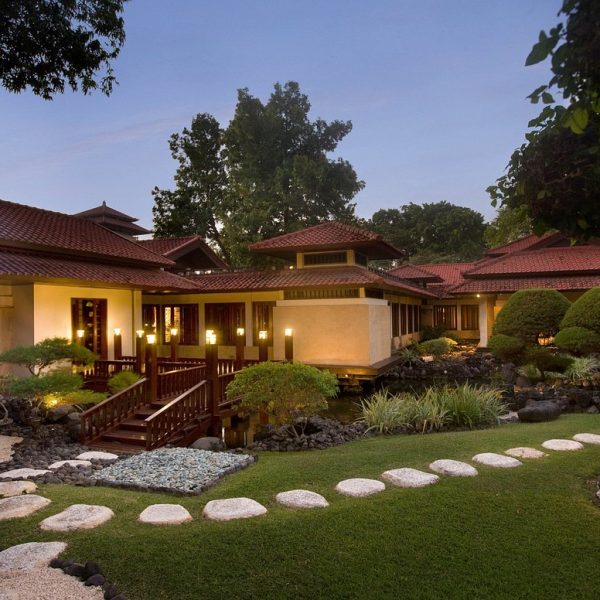






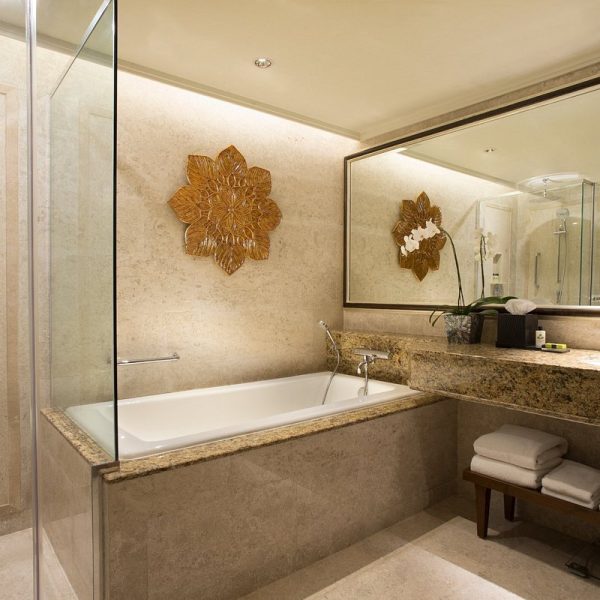
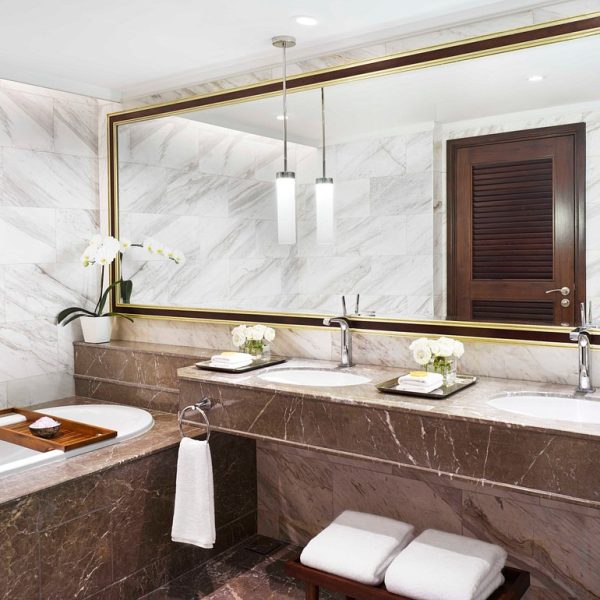

Offering 430 spacious rooms overlooking the stunning Jimbaran Bay, the luxury resort is designed for business or leisure travelers.
Indonesian (Bahasa Indonesia) is the official language of the country but the local language spoken in Bali is Balinese. Balinese is primarily spoken within the local community and for religious ceremonies, while Indonesian is used for communication with people from different parts of Indonesia and for official purposes.
The population of Bali is estimated to be around 4.3 million people and they welcome approximately 6.3 million international tourists each year.
Bali has a relatively consistent tropical climate throughout the year, so the temperature differences between summer and winter are not as pronounced as in some other locations. Bali has Dry and Wet Seasons. The dry season has lower humidity and less rainfall while the wet season has more frequent rainfall.
| Summer | Winter |
|---|---|
| Apr – Sep | Oct – Mar |
| 23°C – 31°C | 23°C – 30°C |
| 73°F – 88°F | 73°F – 86°F |
Bali’s is a great destination to visit year-round. The best time to visit Bali depends on your interests and priorities:
The official currency of Bali and Indonesia is the Indonesian Rupiah, often abbreviated as IDR. Cash is widely used for smaller transactions, while credit and debit cards are accepted at many hotels, restaurants, and larger establishments, especially in tourist areas. However, it’s a good idea to have some cash on hand for places that might not accept cards.
A general budget for Bali is approximately 2,500,000 IDR ($165 USD) per day depending on your activities, dining and accommodation choices.
Bargaining is common in local markets and small shops. While haggling can be fun, remember to do it respectfully. Start with a friendly attitude and be prepared to compromise to reach a fair price for both parties.
Tipping isn’t mandatory, but it’s appreciated. If a service charge is not included in the bill, leaving a small tip for waitstaff, drivers, and other service providers is a nice gesture.
In Bali and Indonesia as a whole, traffic drives on the left-hand side of the road. Traffic in Bali can be congested, especially in tourist areas. Exercise caution if you’re renting a motorbike or car. Rather consider hiring a local driver for a safer and more relaxed travel experience. The following transport options are available:
While alcohol is available in Bali, it’s important to note that public intoxication and disorderly behavior can lead to legal issues. Drinking alcohol is generally accepted in licensed establishments.
The island is home to several active volcanoes, with Mount Agung being the highest and most revered. Volcanic landscapes contribute to Bali’s unique scenery.
Bali follows its own calendar system, known as the Pawukon calendar, which consists of 210 days. This influences the timing of festivals and religious events.
The island hosts a wide range of vibrant festivals, but one of the most unique is Nyepi, the Day of Silence. On this day, all activities come to a halt, and the entire island observes a day of introspection and self-reflection.
Everywhere you go in Bali, you’ll encounter small, intricate offerings called “canang sari.” These are meticulously crafted and placed daily to appease the spirits and bring blessings.
Bali is known for its lively festivals and ceremonies. While these celebrations are a part of the cultural experience, they can be quite loud. If you’re staying near local communities, expect music and festivities during specific times.
Bali’s tropical climate can be hot and humid. Drink plenty of water to stay hydrated, and use sunscreen, hats, and lightweight clothing to protect yourself from the sun’s rays.
Be cautious with the local tap water. It’s generally recommended to drink bottled or boiled water. Consider getting travel insurance that covers medical expenses, as medical care can be costly for non-residents.
The standard voltage is 230V, and the frequency is 50Hz. Power outlets use the Type C and Type F sockets, so you might need a travel adapter if your devices use different plug types.
While most hotels, restaurants, and cafes offer Wi-Fi, the quality and speed might vary. Consider buying a local SIM card If you need a stable and fast internet connection.
Bali faces challenges related to waste management and environmental degradation. Be mindful of your use of plastic and dispose of waste responsibly. Consider participating in beach clean-up initiatives if you’re interested in helping preserve the island’s beauty.
Bali is a safe destination, but like anywhere else, it’s important to stay aware of your surroundings. Keep an eye on your belongings, especially in crowded areas, and use reputable transportation services.
Welcome to Bali Bali is often referred to as the “Island of the Gods” due to its strong spiritual aura. Bali is a popular tourist destination known for its spiritual an
Welcome to Cairo Cairo, a city with a history dating back over 4,000 years, showcases an extraordinary mix of ancient wonders and modern vitality. Home to the iconic Pyramids of Gi
Welcome to Maui Maui, situated in the Central Pacific, is the second-largest of the Hawaiian Islands. Renowned for its diverse landscapes that stretch from serene beaches to the he
Welcome to Cape Town Cape Town is located on the southwest coast of South Africa, at the foot of Table Mountain. It is known for its stunning natural beauty, including beautiful be
